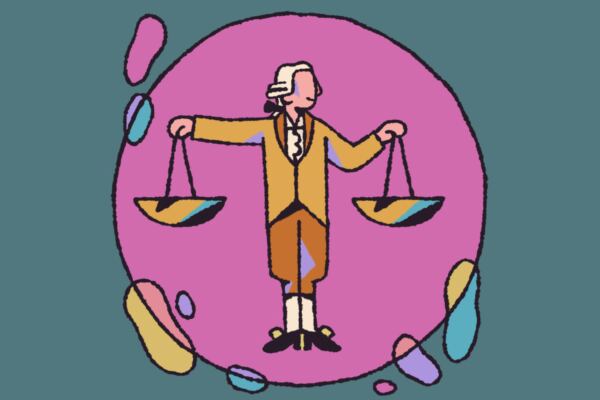
Duty Ethics and the Categorical Imperative
The current dynamics of developments affect all industries and companies. How can we adequately deal with such volatility? The “agile” approach is seen as an answer to this question. But what exactly is agile and what defines agile leadership?
For those in charge, this means making decisions that could serve as a general guideline for others in similar situations, leading to more responsible and sustainable business practices. I am firmly convinced that decisions would be prioritized and evaluated differently if this reflection were conducted consciously, openly, and in critical discourse. In my experience, cognitive and emotional dissonance arises precisely when the categorical imperative is not adhered to — when people preach water and drink wine, or when double standards are applied. I also observe how respect and esteem increase when leaders act with integrity, don’t shy away from difficult decisions, and confront them with an inner commitment.**
Autonomy and Freedom
A central point in Kant’s ethics is the importance of autonomy — the ability of individuals to act independently and self-determinedly. New Work also emphasizes the importance of autonomy in the workplace by granting employees more decision-making freedom and control over their work. Both concepts recognize that autonomy is a key element of human dignity and satisfaction. Kant saw individual autonomy as the foundation of morality and human dignity. This emphasis on individual freedom in Kant’s philosophy is closely tied to the assumption of responsibility. For Kant, true freedom comes with responsibility and respect for the freedom of others.
What could this mean in practice? For one, it means not viewing interfaces with other teams and departments as limitations on your power and freedom but as invitations to collaboratively open up spaces for shaping and development.
Freedom also involves responsibly opening and closing boundaries. Regularly reflect on how attentively and consciously you or your team handle the freedoms and boundaries of others:
- Where could you set boundaries more consciously?
- Which boundaries of others should you respect more carefully to honor their freedoms?
- Where should you reopen boundaries and engage in dialogue?
Community and Cooperation
Although Kant strongly emphasizes individualism, he also recognizes the importance of social relationships and the embedding of individuals within a community. Collaborative work methods, such as Scrum, Kanban, and Design Thinking, organize work in a way that promotes cooperation, strengthens the sense of community within teams and organizations, and enables innovation.
Here’s another practical example: A CEO and a CFO reported on a significant and challenging personnel decision they had made after careful consideration. I asked them two Kantian questions. The first related to the categorical imperative: Would both recommend the maxim underlying their decision as a guideline for all leaders? The second question was whether the community was strengthened by the termination of the employment relationship. They confirmed both aspects. The leadership level, in particular, perceived the decision as an act of fairness and relief: an end had been put to self-optimization at the expense of the team. Both top managers found this Kantian checkpoint to be extremely helpful and guiding in hindsight.
